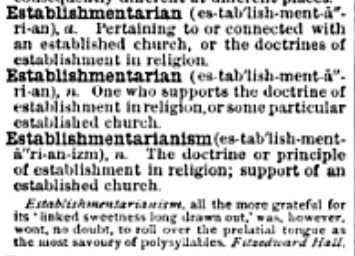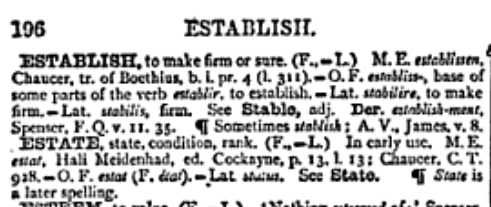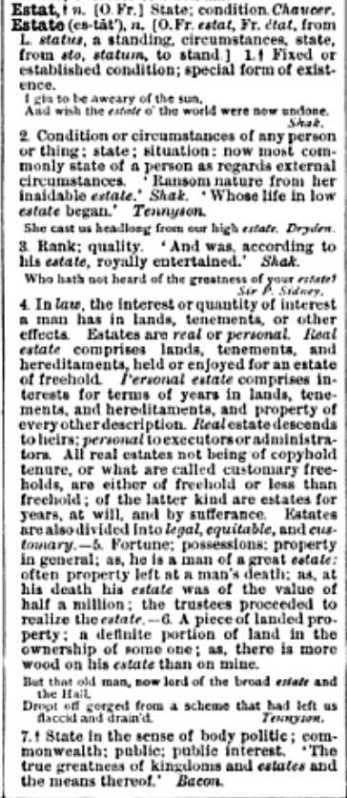xssve
Posts: 3589
Joined: 10/10/2009
Status: offline

|
quote:
ORIGINAL: willbeurdaddy
quote:
ORIGINAL: xssve
quote:
ORIGINAL: willbeurdaddy
quote:
ORIGINAL: xssve
Well it depends on who you ask now doesn't it?
I find it reassuring that the court has never seen fit to interpret it as a noun, which is something I suspect a strict constructionist would be more likely to do.
They never have because its impossible to, as I said, even by Kagan or Sotomayor.
You manage to reinterpret the second amendment the way you want on a regular basis.
ORLY. Why don't you find a single place where I discuss the 2d amendment.
You know how many arguments I've gotten into over the years with right wingers over the deliberate misquote: "The right of the people to keep and bear arms shall not be infringed".
Which is actually: "...the right of the people to keep and bear arms shall not be infringed".
Note the ellipses, the non-capitalization of the word "the" - i.e., it only half a sentence, and much of the inferred meaning here depends on whether you consider the second half of this sentence as a dependent or an independent clause.
There has actually been some progress here, at one time a guy threatened to shoot me for insisting the second half is the dependent clause, completely oblivious to the irony of that, and simultaneously making excellent arguments for keeping and bearing arms, and also regulating them, I had to remind him they didn't just make one.
Anyway, here's a couple of arguments, this first one is a grammatical diagram:
http://www.libertygunrights.com/2-A_Meaning_pg2.gif
The second is a bit more detailed argument:
http://www.guncite.com/journals/maltrad.html
Haven't read the whole thing but it seems sensible enough - the point is that it does depend on who you ask, if you ask a gun nut, the first half of that sentence simply doesn't exist: 'what part of "shall not be infringed" don't you understand!!!!'
And in the end, it depends entirely on whether you're asking Judge Warren or Robert Bork, the latter whom can get very creative when it comes to getting the Constitution to say whatever he wants it to say, and calling it constructionism - actually an even stricter version of it, called originalism.
Meaning is in the context, everyone was aghast at my interpretation, even though, if you heard:
"Congress shall make no law respecting an establishment of religion", you really can't interpret that as meaning anything but "an establishment" as a noun.
What matters here are that we understand the principle and the spirit, because that is the only thing that can guide our interpretation, there is a body of literature on the subject, there are legal precedents including some of the cases cited previously, and this case is a precedent too, but there are, at the same time, a lot of activist Christians who seem to interpret it as meaning there are no limits on their behavior as long as they justify it in the name of religion - they all seem to think it's a noun - does that make it one?
If everybody thought that's what it meant, that what it means, that's how meaning works, and why systematic sophistry like propaganda comes in so handy, whether it's the reconstructionists insisting this is a "Christian country" on CBN, or the NRA handing out lapel pins with the truncated version of the 2nd amendment on them at gun shows.
I'm pretty sure the framers did not set out to make churches free of any and all regulation, any more than I believe that owning a firearm devolves you of any responsibility w/respect to it's care and use, i.e., clearly there is rationale for some kind of oversight on where and when a gun may be used - and so far, as a living document, nobody has succeeded in making either one stick: priests are liable for prosecution, owning a gun doesn't mean you can do whatever you want with it.
Constructionism and originalism are tools, there is nothing wrong with making originalist arguments, the framers obviously had some meaning in mind or they wouldn't have said it - but originalism is not always the argument settler, anymore than current public opinion is when it comes to the fundamental question of "what is just".
To answer that, you do have to ponder: what is just?
< Message edited by xssve -- 10/18/2011 8:09:45 AM >
|

 Profile
Profile


 I guess he wasn't really serious about doing his part to stop global warming...
I guess he wasn't really serious about doing his part to stop global warming... 




 New Messages
New Messages No New Messages
No New Messages Hot Topic w/ New Messages
Hot Topic w/ New Messages Hot Topic w/o New Messages
Hot Topic w/o New Messages Locked w/ New Messages
Locked w/ New Messages Locked w/o New Messages
Locked w/o New Messages Post New Thread
Post New Thread